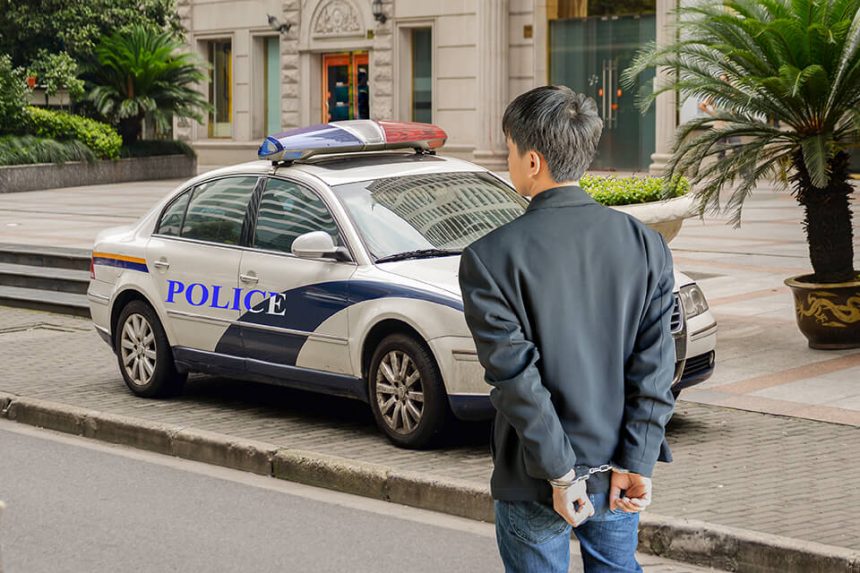Do you try to follow the rules most of the time? If so, you’re not alone.
Most people get nervous just seeing police lights in the rearview, even when they’re not speeding. And the thought of being questioned by a law enforcement officer probably makes you feel incredibly uncomfortable, regardless of your innocence.
Why is this? Well, it mostly boils down to human nature because the average person will try to avoid getting into trouble at all costs.
So you might be wondering what happens when you get arrested? If that’s the case, you’ve come to the right place for answers.
This article takes a look at the process of getting arrested and what to expect. Keep reading to get the inside scoop.
Being Questioned
There’s no denying that being questioned by police officers can be stressful. This is especially true if you’ve been pulled over for a serious traffic violation or you are a suspect in a criminal case.
In the case of a traffic stop, an officer will pull you over, ask for your license and registration, and radio your personal information back to the dispatcher to check for any outstanding warrants or other issues. Once the officer determines that you need to be arrested, you’ll be handcuffed and placed in the back of a squad car.
Or perhaps an officer shows up at your home with a warrant for your arrest. In this situation, you’ll be asked to confirm your identity, they will read you your rights, and then place you under arrest.
In both of these scenarios, you will then be taken to a local police station to be booked.
The Arrest
It’s important to fully understand the arrest process. Keep in mind that an officer is simply doing their job, but they are not your friend. They will ask questions in an effort to prompt a confession for whatever crime you’re being accused of.
You should not feel any obligation to be friendly or chatty with the arresting officer. Even if the officer attempts friendly banter, it’s best to speak as little as possible and wait until you’ve talked to a lawyer before offering any information about your involvement in criminal activity. Because remember, anything you say can and will be used against you in a court of law.
The Booking Process
Once you’ve been arrested and transported to a police station, you will now be formally booked and charged with a crime.
Keep in mind that this environment will be extremely uncomfortable and intimidating. This is by design. There will be holding cells filled with other people who’ve been arrested and are either awaiting release or to go before a judge.
When you first arrive, you’ll likely be told to sit on a bench to await booking, or placed in a holding cell while the process other inmates ahead of you. Again, you’d be wise to keep your mouth shut and avoid talking to the people around you. The cell will be cold and dirty, with hard surfaces and a public toilet out in the open.
When your turn for booking comes, you will be weighed and measured for height. You’ll then be asked to empty your pockets and turn over all your personal possessions, including your cell phone, thus you’d better make sure to have at least one contact number memorized for your one phone call.
During this process, just remember to keep to yourself, be polite during your interactions with the officers handling your booking, and always follow directions to make the process go as quickly and smoothly as possible. And again, resist the impulse to offer information or to volunteer a confession in the hopes of winning favor with them.
Why? Because they are interested in the truth, they are only interested in closing the case as quickly and efficiently as possible.

Mugshot and Being Fingerprinted
Once you are done at the booking desk, you will likely be placed back in the holding cell until it’s your turn in line for a mugshot and fingerprinting.
This is the point in the process where you’re actually entered into the legal system.
For the mugshot, you’ll be asked to stand on a line on the floor with your back to a wall. You will be photographed from the front and then in profile from both sides of your face.
Next, an officer will take your fingerprints. This process can be rather unpleasant. They will capture your full handprint, each finger, and then each finger from every possible angle so that you could be easily identified in the future.
When the mugshot and fingerprinting process is finally complete, you’ll likely be placed back in the holding cell until they can decide what to do with you.
Being Detained
Depending on the charge, you might only be detained for an hour or two, or you could remain in a cell for several days.
You might stay in the same cell the entire time, or you could be moved to another cell as more inmates are processed. The key is to try to get comfortable and be cooperative.
One Phone Call
The law dictates that you get one phone. So you’d better make it a good one. This means calling someone that can help you.
The best strategy is to either call a loved one who can then hire a lawyer, or use your phone call to contact a lawyer yourself. When hiring a lawyer, make sure to pick someone who can streamline the process for appearing before a judge and help you post bail.
Check out this criminal defence lawyer.
Going Before a Judge
When you appear before a judge, let your attorney do all the talking. They will tell you when to speak and what to say, thus you need to listen carefully and do exactly as instructed.
Posting Bail
The judge overseeing the case will either dismiss the charges or set your bail at a specific dollar amount. The faster you can arrange to post bail with a bail bondsman Dayton Ohio, the faster you’ll be released to await trial.
If bail is refused, you’ll be forced to remain in custody at least until your next hearing.
A Citizen’s Guide to What Happens When You Get Arrested By a Police Officer
Dealing with the justice system is never a fun experience. Fortunately, this guide to what happens when you get arrested will help make the process a little less stressful.
Keep scrolling to discover more great lifestyle tips and advice on this blog.















